Hãy nhập câu hỏi của bạn vào đây, nếu là tài khoản VIP, bạn sẽ được ưu tiên trả lời.

Come see this unique and modern house built on a cliff overlooking the ocean. The house has a spacious interior with stunning glass and metal design that perfectly complements the natural rock formation. And the view is extremely spectacular, with unobstructed views of the endless ocean. You won't find another house quite like this one, so come and see it for yourself.
Tạm dịch:
Hãy đến xem ngôi nhà độc đáo và hiện đại này được xây dựng trên một vách đá nhìn ra biển. Ngôi nhà có nội thất rộng rãi với thiết kế bằng kính và kim loại tuyệt đẹp bổ sung hoàn hảo cho sự hình thành đá tự nhiên. Và góc nhìn thì rất ngoạn mục, với tầm nhìn không bị cản trở ra đại dương vô tận. Bạn sẽ không tìm thấy một ngôi nhà nào khác giống như ngôi nhà này, vì vậy hãy đến và tự mình xem nó.

A. mansion (khu nhà lớn)
B. thatched cottage (nhà tranh lợp mái)
C. semi-detached house (nhà liền kề)
D. flat (căn hộ)
A: What type of home do you live in?
(Bạn sống trong loại nhà nào?)
B: I live in a detached house in district 10.
(Tôi sống trong một căn nhà biệt lập ở quận 10.)

In my opinion the best thing about spending a year with a family abroad is that all of the members have the opportunity to learn and speak a new language and visit different places in another country. Moreover, the young generation can learn in a new educational environment which brings more job opportunities for the future. In contrast, the worst thing about spending a year with a family abroad is missing the place where we were born and grown up. We will find it is strange to eat different food as well as experience new cultures that we aren't used to.
Tạm dịch:
Theo tôi, điều tuyệt vời nhất khi dành một năm cùng gia đình ở nước ngoài là tất cả các thành viên đều có cơ hội học và nói một ngôn ngữ mới cũng như tham quan những địa điểm khác nhau ở một quốc gia khác. Hơn nữa, thế hệ trẻ được học tập trong một môi trường giáo dục mới, mang lại nhiều cơ hội việc làm cho tương lai. Ngược lại, điều tồi tệ nhất khi dành một năm với gia đình ở nước ngoài là nhớ nơi chúng ta sinh ra và lớn lên. Chúng ta sẽ thấy lạ lẫm khi ăn những món ăn khác nhau cũng như trải nghiệm những nền văn hóa mới mà chúng ta chưa quen.

Living in a smart city brings many benefits and disadvantages. In this article, I will present some pros and cons of living in a smart city.
The first advantage of living in a smart city is convenience. Information and communications technology is integrated into urban systems, helping to provide public services more effectively. For example, through mobile applications, people can easily search for information about transportation, destinations, and entertainment activities. Furthermore, the smart traffic system helps reduce congestion and save travel time.
Another advantage of smart cities is energy saving and environmental protection. Advanced technologies are applied to manage and use resources effectively. For example, automatic lighting and temperature regulation in buildings help save energy. In addition, the use of smart public transport and self-driving cars helps reduce polluting emissions.
However, living in a smart city also has disadvantages. One of them is the issue of information security. With the widespread use of information technology, the risk of personal information insecurity and privacy violations increases. This requires strong security measures to ensure the safety of people's personal data.
Another drawback of smart cities is their dependence on technology. If technology systems fail or are attacked, public services could be disrupted. This poses challenges for maintaining stability and ensuring security of smart cities.
In short, living in a smart city brings many benefits such as convenience and energy savings. However, it is also necessary to pay attention to information security issues and dependence on technology. To make the most of the advantages and minimize the disadvantages, smart investment and management from city managers is needed.

Bài nghe:
Speaker 1: We all know what it’s like to argue with our family. It’s just part of life, isn’t it? Well, not necessarily. Sometimes, family arguments can become a habit ... a habit that is harmful and upsetting for the people involved. Our three-week course will teach you some simple tricks and techniques for breaking that habit. Do the course on your own or better still, persuade other members of your family to come along with you.
Speaker 2: When I was younger, I had a lot of arguments with my parents ... and with my sister too. I won a few of them, but mostly I lost. Then I realised what I was doing wrong: I wasn’t preparing for the arguments. So I started treating them more like exams. I actually started revising for my family arguments! I prepared all my reasons, my examples. You really should take the same approach – it works like magic! Now I hardly ever lose an argument at home.
Speaker 3: Hi, Poppy, it’s me. Look, this family meal is on Sunday ... that’s this Sunday. Mum and Dad will be there, and so will Grandad. I’m not sure about Uncle John. But then, we’ve never been sure about Uncle John. Anyway, I really need to know that you’re going to be there. Without you, it might be a disaster. You know how Grandad always tries to start an argument when we’re out. He’s much better when you’re there. So give me a call and tell me you’re coming. Please!
Speaker 4: I left home when I was seventeen after an argument with my parents, and to be honest, it was the best thing that happened to me. I had to grow up quickly! At nineteen, I started my own business. Now I live in a £5-million penthouse in London and run a business with more than a thousand employees. That family argument gave me the push I needed. Of course, I’ve got a lot of talent too!
Tạm dịch:
Diễn giả 1: Tất cả chúng ta đều hiểu tranh cãi với gia đình mình là như thế nào. Nó chỉ là một phần của cuộc sống, phải không? Ồ, không nhất thiết. Đôi khi, những cuộc cãi vã trong gia đình có thể trở thành một thói quen... một thói quen tai hại và khó chịu cho những người liên quan. Khóa học kéo dài ba tuần của chúng tôi sẽ truyền đạt cho bạn một số thủ thuật và kỹ thuật đơn giản để phá bỏ thói quen đó. Tự mình thực hiện khóa học hoặc tốt hơn nữa là thuyết phục các thành viên khác trong gia đình cùng tham gia với bạn.
Diễn giả 2: Khi tôi còn nhỏ, tôi đã cãi nhau rất nhiều với bố mẹ... và với chị gái tôi nữa. Tôi đã thắng một vài trong số đó, nhưng hầu hết là tôi thua. Sau đó, tôi nhận ra mình đã làm sai điều gì: tôi đãkhông chuẩn bị cho các cuộc tranh luận. Vì vậy, tôi bắt đầu coi chúng giống như các kỳ thi vậy. Tôi thực sự đã bắt đầu chuẩn bị cho nhứng cuộc tranh luận gia đình! Tôi đã chuẩn bị tất cả các lý do, các ví dụ của tôi. Bạn thực sự nên áp dụng cách tiếp cận tương tự – nó hoạt động như một phép màu vậy đó! Bây giờ tôi hầu như không bao giờ thua trong một cuộc tranh cãi ở nhà.
Diễn giả 3:Xin chàoPoppy, emđây. Nhìn xem, bữa cơm gia đình này là vào Chủ Nhật... đó là Chủ Nhật tuần này đấy. Bố mẹ sẽ ở đó, và ông cũng vậy. Emkhông chắc về chú John lắm. Nhưng thật ra thì,chúng ta đãbao giờ chắc chắn về chú John đâu. Dù sao đi nữa, em thực sự cần chắcrằng chị sẽ ở đó. Nếu không có chị, nó có thể là một thảm họa mất.Chịbiết là ông nội luôn cố bắt đầu một cuộc tranh cãi khi chúng ta ở bên ngoài mà. Ông sẽ thấy ổn hơn nhiều khi chị ở đó. Vì vậy, hãy gọi cho em và báo rằng chị sẽ đến nhé. Làm ơn đấy!
Diễn giả 4: Tôi rời nhà năm mười bảy tuổi sau một cuộc tranh cãi với bố mẹ, và thành thật mà nói, đó là điều tốt nhất đã đến với tôi. Tôi đã phải trưởng thành một cách thật nhanh! Năm mười chín tuổi, tôi bắt đầu kinh doanh riêng. Bây giờ tôi đangsống trong một căn penthousetrị giá 5 triệu bảng ở London và điều hành một doanh nghiệp với hơn một nghìn nhân viên. Cuộc cãi vã với gia đình gia đình đó đã cho tôi động lực lớn. Tất nhiên, tôi cũng rất có khiếu đấy chứ!
Lời giải chi tiết:
Speaker 1 – C | Speaker 2 – A | Speaker 3 – D | Speaker 4 – B |

Dear Anna,
I'm glad that you like the cooking book. It has many interesting recipes in there, you should try one. By the way, Sunday sounds great, I'll come over at 4 p.m.
See you soon,
Linda
Hi Anna,
I'm glad that you're finding my book on healthy cooking helpful.
I am delighted to join you at your home this Sunday to find out some recipes from the book with you.
Unfortunately, my mango trees has not produced any mangoes at the time, but by the way I will buy some fresh mangoes from the market on the way to your place for one of the dishes.
Looking forward to seeing you soon.
Warm regards.
Linda.

a) countable nouns: document, gadget
(danh từ đếm được: tài liệu, tiện ích)
b) uncountable nouns: habit, health, information, money, music, software, website, homework
(danh từ không đếm được: thói quen, sức khỏe, thông tin, tiền bạc, âm nhạc, phần mềm, trang web, bài tập về nhà)

1. D 2. A 3. C 4. B 5. F
Rachel Carson, an ecologist, a biologist, and a writer, was born in 1907 in Springdale, Pennsylvania. As a small girl, she was an avid reader and soon showed a keen interest in the natural world and writing. 1 She had her first story about animals published in a magazine when she was in the fourth grade. She graduated from Pennsylvania College for Women (now Chatham University) in 1929, studied at the Woods Hole Marine Biological Laboratory, and received her MA in zoology from Johns Hopkins University in 1932.
Initially, Rachel Carson worked for the US Bureau of Fisheries as a part-time science writer. 2 Part of her job was to interest the public in marine and freshwater biology via radio programmes. She then spent the next few years serving as a marine scientist and editor for the US Fish and Wildlife Service. There, she became famous for her writings on environmental pollution and the natural history of the sea, 3 She warned the public about its negative long-term effects. Climate change, rising sea-levels, melting Arctic glaciers, decreasing animal populations are part of her work. In her most influential book, Silent Spring (1962), Rachel Carson strongly disapproved of the widespread use of pesticides such as DDT. 4 Firstly, Silent Spring suggested a much-needed change in people's way of life and called for new policies to protect humans and the environment. She then was criticised by the chemical industry and some government officials, but never gave up. 5 The book eventually prompted a change in national policy, leading to the enactment of a national ban of pesticides on agricultural farming. Additionally, it helped spark the environmental movement, resulting in the establishment of the United States Environmental Protection Agency. That's why she was called the mother of modern ecology.
Rachel Carson died of breast cancer in 1964. However, her work continues to inspire new generations to protect all the living world.
Tạm dịch
Rachel Carson, nhà sinh thái học, nhà sinh vật học và nhà văn, sinh năm 1907 tại Springdale, Pennsylvania. Khi còn là một cô gái nhỏ, cô ấy là một người ham đọc sách và sớm thể hiện sự quan tâm sâu sắc đến thế giới tự nhiên và viết lách. Cô ấy có câu chuyện đầu tiên về động vật được đăng trên một tạp chí khi cô ấy học lớp bốn. Cô tốt nghiệp Đại học Phụ nữ Pennsylvania (nay là Đại học Chatham) vào năm 1929, học tại Phòng thí nghiệm Sinh học Biển Woods Hole và nhận bằng Thạc sĩ về động vật học tại Đại học Johns Hopkins vào năm 1932.
Ban đầu, Rachel Carson làm việc cho Cục Thủy sản Hoa Kỳ với tư cách là một nhà văn khoa học bán thời gian. Một phần công việc của cô là thu hút sự quan tâm của công chúng đến sinh vật biển và nước ngọt thông qua các chương trình phát thanh. Sau đó, cô đã dành vài năm tiếp theo với tư cách là nhà khoa học biển và biên tập viên cho Cơ quan Cá và Động vật hoang dã Hoa Kỳ. Ở đó, cô trở nên nổi tiếng với những bài viết về ô nhiễm môi trường và lịch sử tự nhiên của biển, Cô cảnh báo công chúng về những tác động tiêu cực lâu dài của nó. Biến đổi khí hậu, mực nước biển dâng cao, băng tan ở Bắc Cực, giảm quần thể động vật là một phần công việc của cô. Trong cuốn sách có ảnh hưởng nhất của mình, Silent Spring (1962), Rachel Carson cực lực phản đối việc sử dụng rộng rãi thuốc trừ sâu như DDT. Đầu tiên, Silent Spring đề xuất một sự thay đổi rất cần thiết trong cách sống của mọi người và kêu gọi các chính sách mới để bảo vệ con người và môi trường. Sau đó, cô bị chỉ trích bởi ngành công nghiệp hóa chất và một số quan chức chính phủ, nhưng không bao giờ bỏ cuộc. Cuốn sách cuối cùng đã thúc đẩy một sự thay đổi trong chính sách quốc gia, dẫn đến việc ban hành lệnh cấm toàn quốc về thuốc trừ sâu trong canh tác nông nghiệp. Ngoài ra, nó đã giúp châm ngòi cho phong trào môi trường, dẫn đến việc thành lập Cơ quan Bảo vệ Môi trường Hoa Kỳ. Đó là lý do tại sao cô được gọi là mẹ của hệ sinh thái hiện đại.
Rachel Carson qua đời vì bệnh ung thư vú vào năm 1964. Tuy nhiên, công việc của cô vẫn tiếp tục truyền cảm hứng cho các thế hệ mới bảo vệ tất cả thế giới sống.


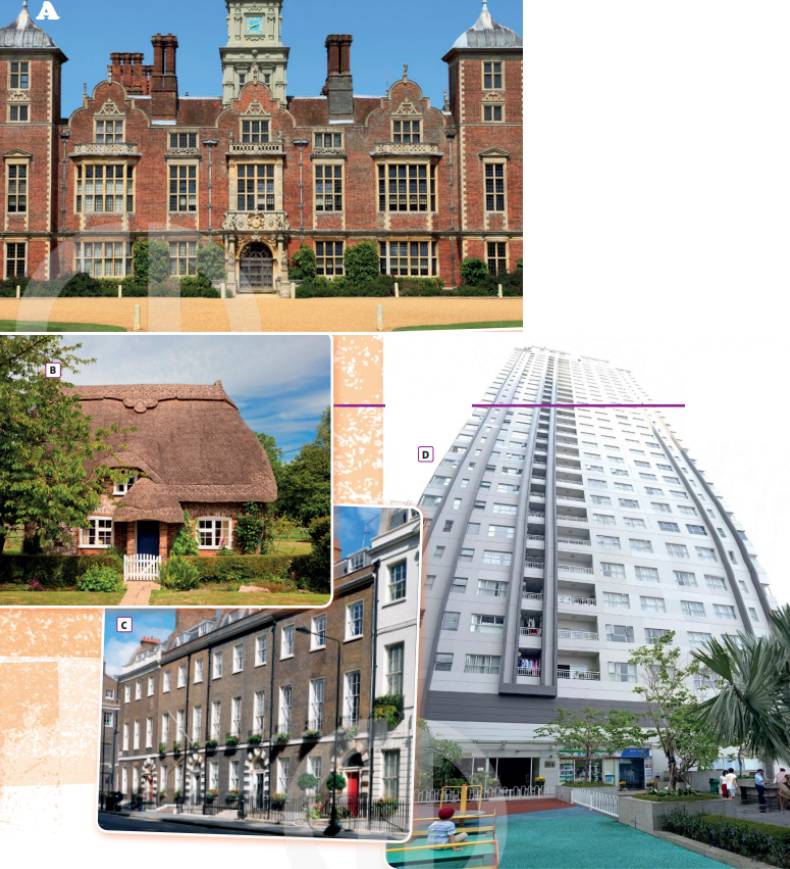
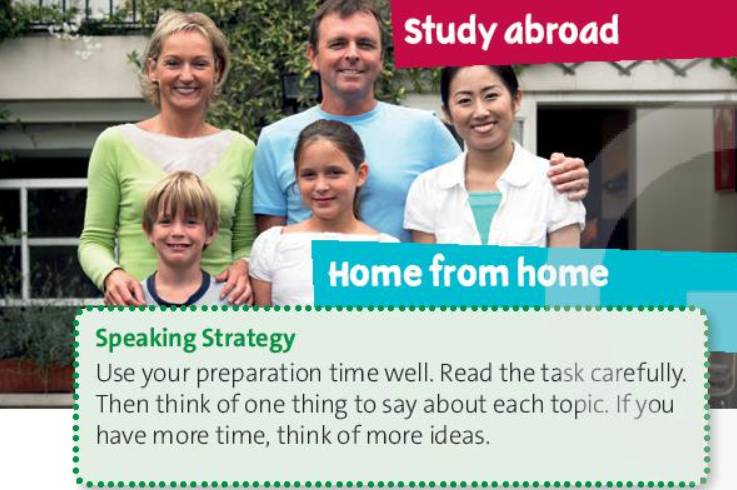
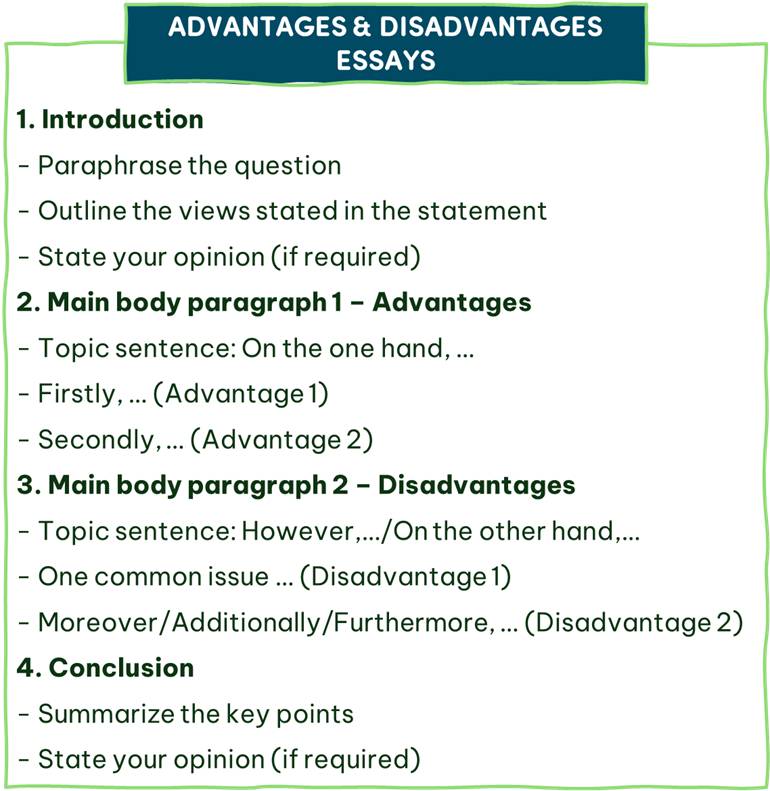
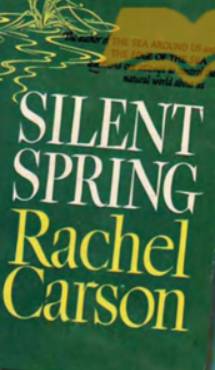
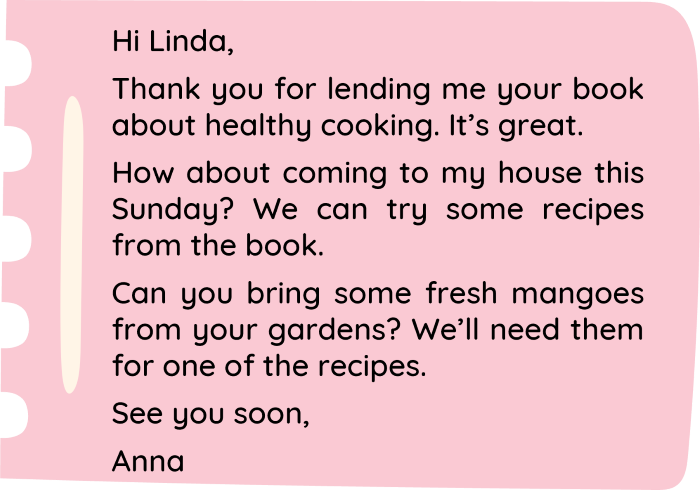

Picture A smartwatch
Picture B digital radio
Picture C games console
Bluetooth headset: tai nghe bluetooth
Bluetooth speaker: loa bluetooth
camcorder: máy quay phim
memory stick: thẻ nhớ
MP3 Player: máy nghe nhạc
satnav: định vị vệ tinh
smartphone: điện thoại thông minh
table: máy tính bảng